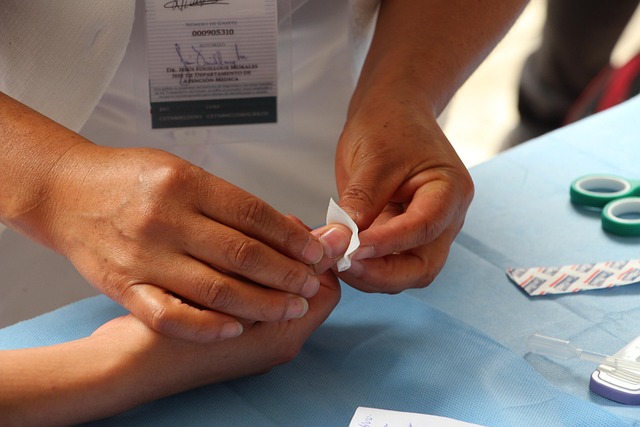Crohn's Disease Treatment: Managing Digestive Tract Inflammation
Crohn's disease is a chronic inflammatory bowel disease that affects the digestive tract, causing symptoms such as abdominal pain, diarrhea, and weight loss. While there is no cure for Crohn's disease, various treatment options are available to manage symptoms, reduce inflammation, and improve quality of life. This article explores the current approaches to treating Crohn's disease, including medications, lifestyle changes, and surgical interventions.

How does a doctor diagnose Crohn’s disease?
Diagnosing Crohn’s disease can be challenging, as its symptoms often mimic those of other gastrointestinal disorders. A doctor will typically start with a thorough medical history and physical examination. They may then order a series of tests to confirm the diagnosis and assess the extent of inflammation in the digestive tract. These tests may include:
-
Blood tests to check for anemia, inflammation markers, and nutritional deficiencies
-
Stool tests to rule out infections and detect hidden blood
-
Imaging studies such as CT scans, MRI, or small bowel series
-
Endoscopic procedures like colonoscopy or upper endoscopy to visualize the digestive tract and take tissue samples for biopsy
A combination of these diagnostic tools helps doctors accurately diagnose Crohn’s disease and determine the most appropriate treatment plan for each patient.
What are the main treatment options for Crohn’s disease?
Treatment for Crohn’s disease aims to reduce inflammation, alleviate symptoms, and prevent complications. The main treatment options include:
-
Medications: Various drugs can be used to manage Crohn’s disease, including:
-
Anti-inflammatory drugs (e.g., corticosteroids, aminosalicylates)
-
Immunosuppressants (e.g., azathioprine, methotrexate)
-
Biologic therapies (e.g., infliximab, adalimumab)
-
Antibiotics to treat infections or fistulas
-
-
Nutritional therapy: Some patients may benefit from special diets or nutritional supplements to manage symptoms and prevent malnutrition.
-
Surgery: In cases where medications are ineffective or complications arise, surgical intervention may be necessary to remove damaged portions of the digestive tract or repair fistulas.
-
Lifestyle modifications: Stress management, regular exercise, and smoking cessation can help reduce symptoms and improve overall well-being.
The choice of treatment depends on the severity of the disease, its location in the digestive tract, and individual patient factors. A gastroenterologist will work closely with the patient to develop a personalized treatment plan.
How can patients manage their Crohn’s disease symptoms?
While medical treatments are essential for managing Crohn’s disease, patients can also take steps to control their symptoms and improve their quality of life:
-
Follow a balanced diet: Identify and avoid trigger foods that exacerbate symptoms. Some patients find relief by following specific diets, such as low-fiber or low-residue diets during flare-ups.
-
Stay hydrated: Drink plenty of water to prevent dehydration, especially during episodes of diarrhea.
-
Manage stress: Stress can worsen symptoms, so practicing stress-reduction techniques like meditation, yoga, or deep breathing exercises can be beneficial.
-
Get regular exercise: Physical activity can help improve overall health and reduce stress.
-
Quit smoking: Smoking has been shown to worsen Crohn’s disease symptoms and increase the risk of complications.
-
Adhere to medication regimens: Take prescribed medications as directed by your doctor to maintain remission and prevent flare-ups.
-
Keep a symptom diary: Track symptoms, diet, and potential triggers to help identify patterns and inform treatment decisions.
What role does a gastroenterologist play in Crohn’s disease treatment?
A gastroenterologist is a specialist in digestive system disorders and plays a crucial role in the diagnosis and treatment of Crohn’s disease. Their responsibilities include:
-
Conducting thorough evaluations and ordering appropriate diagnostic tests
-
Developing and adjusting treatment plans based on the patient’s individual needs
-
Prescribing and monitoring medications
-
Performing endoscopic procedures for diagnosis and treatment
-
Coordinating care with other specialists, such as nutritionists or surgeons
-
Providing patient education and support
-
Monitoring disease progression and treatment effectiveness
Regular follow-up appointments with a gastroenterologist are essential for managing Crohn’s disease effectively and preventing complications.
In conclusion, Crohn’s disease treatment involves a multifaceted approach aimed at reducing inflammation, managing symptoms, and improving quality of life. While there is no cure, advances in medical treatments and a better understanding of the disease have greatly improved outcomes for patients. By working closely with healthcare providers and actively participating in their care, individuals with Crohn’s disease can effectively manage their condition and lead fulfilling lives.
This article is for informational purposes only and should not be considered medical advice. Please consult a qualified healthcare professional for personalized guidance and treatment.






